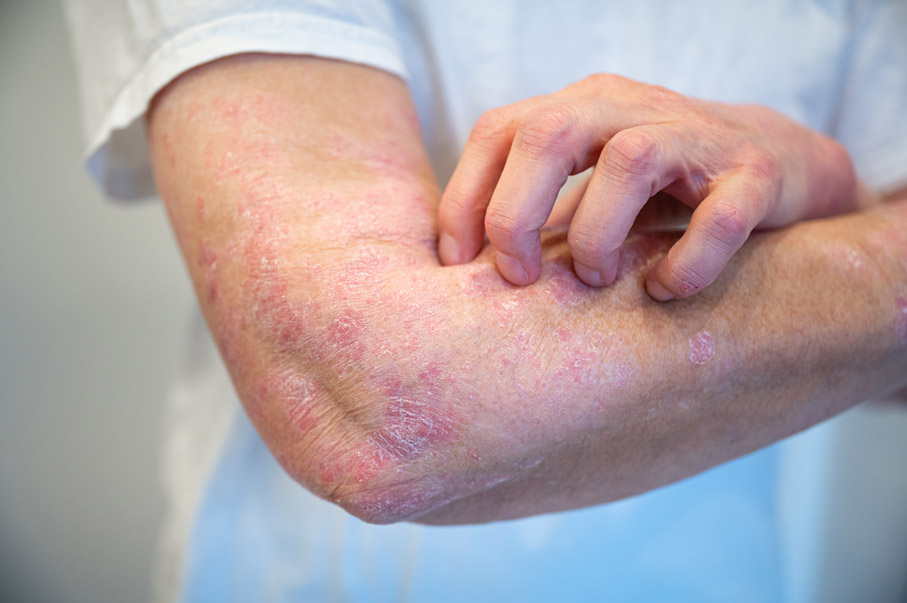Advertisment
Large study shows link between Vitamin D and psoriasis severity

More than eight million people in the U.S. experience psoriasis, a condition in which skin cells build up and form itchy dry patches. A person’s vitamin D levels could play an important role in psoriasis severity, according to one of the largest studies to date.
The analysis, which included almost 500 psoriasis cases from the National Health and Nutrition Examination Survey (NHANES), showed a linear relationship between increasing psoriasis severity and decreasing vitamin D levels measured through blood tests.
“Topical synthetic vitamin D creams are emerging as new therapies for psoriasis, but these usually require a doctor’s prescription,” said Rachel K. Lim, an MD candidate at the Warren Alpert Medical School of Brown University. “Our results suggest that a vitamin D-rich diet or oral vitamin D supplementation may also provide some benefit to psoriasis patients.”
Lim will present the findings at NUTRITION 2023, the annual flagship meeting of the American Society for Nutrition held July 22-25 in Boston.
The research team was led by Eunyoung Cho, ScD, an associate professor in the Department of Dermatology at the Warren Alpert Medical School of Brown University who studies the role of nutrition and environmental factors in skin cancer and inflammatory skin diseases such as psoriasis. Vitamin D is thought to influence the development of skin diseases by affecting the body’s immune response and through direct effects on the cells involved in skin repair.
“With growing public interest in vitamin supplementation, we wanted to further examine the connection between vitamin D levels and psoriasis severity,” said Cho. “Few studies have looked for this association in groups of people, especially in large U.S. populations, or examined this relationship through a clinical nutrition lens.”
For the new study, the researchers identified 491 psoriasis cases from more than 40,000 NHANES participants, with 162 cases from 2003-2006 and 329 from 2011-2014. They also extracted data on vitamin D levels, self-reported psoriasis-affected body surface area and other factors including age, gender, race, body mass index, and smoking status.
After adjusting for lifestyle factors such as smoking, the analysis showed that lower vitamin D levels and vitamin D deficiency were significantly associated with greater psoriasis severity. The researchers also found that patients with the least amount of body surface affected by psoriasis had the highest average vitamin D levels while those with the greatest affected area had the lowest average levels of vitamin D.
“Only one previous study, published in 2013, has used NHANES data to analyze the relationship between vitamin D and psoriasis,” said Lim. “We were able to add more recent data, which more than tripled the number of psoriasis cases analyzed, making our results more up-to-date and statistically powerful than previously available data.”
Although dietary vitamin D toxicity is rare, the researchers advise people with psoriasis to consult their physicians and dermatologists before taking supplements.
Lim will present this research at 10:17 a.m. on Tuesday, July 25, during the Micronutrients, Supplements and Chronic Disease Mechanisms Poster Theater Flash Session in the Sheraton Boston, Fairfax (abstract; presentation details).
Please note that abstracts presented at NUTRITION 2023 were evaluated and selected by a committee of experts but have not generally undergone the same peer review process required for publication in a scientific journal. As such, the findings presented should be considered preliminary until a peer-reviewed publication is available.





